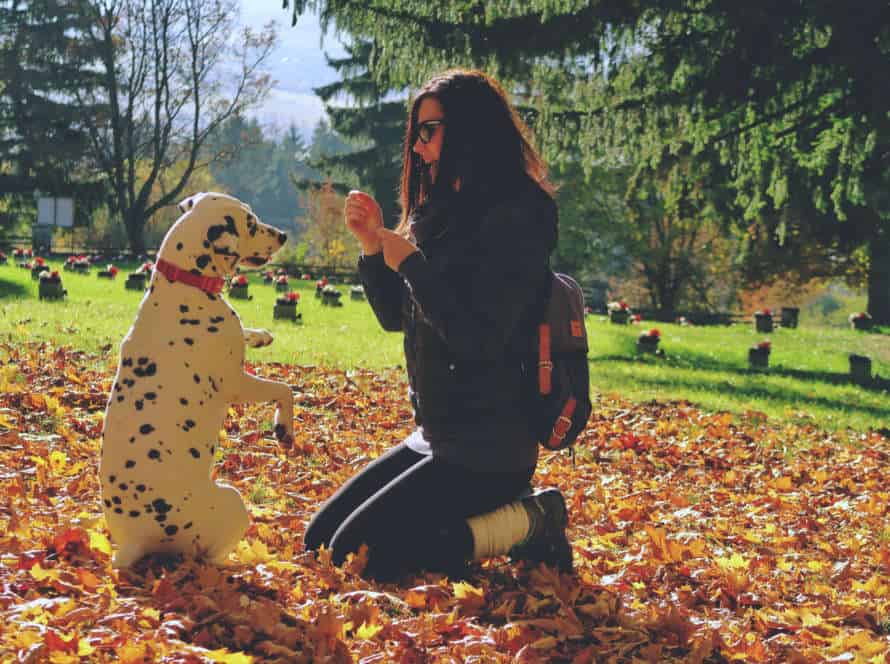The Role of Breed in Your Dog’s Digging Behavior
Breed plays an important part in a dog’s digging habits. Some were created for this purpose, so it’s an instinct to them. Here are some breeds that tend to dig:
- Terriers – Jack Russell, West Highland White Terrier, and Dachshunds were bred to search for small animals. They need to dig to do this.
- Hounds – Beagles and Basset Hounds will dig to track scents.
- Huskies – Huskies and other sled dogs were created to dig snow caves for shelter.
Digging could be a result of their breed, but it can also mean boredom, stress, or anxiety. Training, exercise, and mental stimulation can help with too much digging.
Understanding Breed-Specific Digging Behavior
Centuries of breeding have given dogs distinct traits and specialized tasks. This means certain dog breeds have a leaning towards particular behaviors, like digging. To manage this, it helps to know which breeds are known for their diggy tendencies. Let’s explore!
Differences in Terrier Breeds’ Digging Behaviors
Terriers are a type of pup that have been carefully bred for certain traits, like digging. So, it’s important to recognize breed-specific digging habits to stop destruction to gardens and homes.
Each terrier breed has different digging behaviors, such as:
- Jack Russell Terriers – Bred for hunting and digging, they have an intense prey drive and usually are high-energy. Playtime and exercise is necessary to keep them from digging up the garden.
- Welsh Terriers – Bred to hunt rodents and foxes, they possess a strong prey drive and are highly intelligent. They need loads of exercise and mental stimulation to stop them from digging out of boredom.
- Dachshunds – Used for badger hunting, they have a powerful digging instinct. These short-legged pups are great at making tunnels, so be careful in the garden!
- Cairn Terriers – Bred to hunt small animals, they have a great sense of smell and a powerful prey drive. Exercise and activity is essential to stop them digging.
Knowing your terrier’s particular behavior can help control their digging. With the right physical and mental stimulation, you can protect your property.
Understanding Herding Breeds’ Digging Behaviors
Herding breeds are known to have a natural instinct to dig. This could be due to their breed-specific heritage, habits, or environment.
Why do they do this?
- Herding instinct: They may dig holes to create a comfy spot to rest, or to hide food, toys, and bones.
- Boredom or anxiety: If left alone for too long or not given enough exercise, herding breeds may dig holes to keep themselves entertained, or relieve stress.
- Hunting or prey drive: Some herding breeds have a strong natural instinct to hunt small animals, such as rodents, or chase after wildlife – this could lead to digging.
If you own a herding breed, it is important to understand why they dig. Provide them with exercise, training, and mental stimulation to prevent destructive digging behavior.
Hunting Breeds and Their Digging Behaviors
Hunting breeds like terriers, dachshunds, and beagles are known for their digging behavior. This is an instinctual behavior that helps them hunt and track prey.
Terriers were bred to catch vermin, so they have a natural instinct to dig and burrow.
Dachshunds were created to hunt badgers and other animals that live in tunnels. Therefore, they have a strong desire to dig and tunnel underground.
Beagles were made to track and hunt rabbits. They have a knack for following scents and digging after their prey.
It is important to understand your dog’s breed-specific digging behavior. You can provide them with appropriate outlets, such as creating a designated digging area or providing interactive toys that encourage digging and burrowing.
Environmental Factors That Contribute to Digging Behavior
Do people assume the breed of your pup is the ultimate influence for why they dig? Nope! Environmental factors have a role too. From soil type in the backyard to the environment around them, these factors can influence a dog’s digging behavior. Here, we’ll explain how environmental factors can affect digging behavior in different canines.
The Role of Temperature and Climate in Digging Behaviors
Temperature and climate affect a dog’s digging habits, along with other factors.
In hot weather, dogs might dig for a cool spot to lie in. If it’s cold, they may make a den to stay warm.
Other environmental sources, like boredom or no exercise, can affect a dog’s digging. Certain breeds like terriers and dachshunds are known to dig more than others.
Learning your dog’s breed and behavior can help you address their digging habits. Exercise, mental stimulation, and creating dig areas are helpful.
Plus, positive reinforcement works great! Treats and praise can encourage digging in designated areas.
How Soil Characteristics Can Affect Digging Behavior
Soil characteristics can influence your pup’s digging. Soft soil, like sand or loose topsoil, is more inviting. Compact soil, such as clay, is less appealing. Certain breeds, like Terriers or Dachshunds, are more likely diggers. Here’s what you can do:
- Offer a specified space for your pup to dig.
- Bury treats or toys in the area to entice digging there.
- Go for long walks or runs to reduce digging.
Tip: Knowing your pup’s breed and soil preferences can aid in stopping unwanted digging. Alternatives and a designated digging place can help too.
The Importance of Environmental Enrichment to Prevent Digging In Dogs
Environmental enrichment is key to stop a dog from digging. Different environmental conditions can make a pup to dig, such as boredom, inadequate exercise and mental stimulation. Here are some tips:
- Give lots of chances for physical activity – like daily walks, runs and training.
- Use puzzle toys and interactive games to keep your pooch’s mind active.
- Prevent digging by having a play area with soft ground coverings like bark chips, sand or mulch.
- When outside, watch your pup and divert their attention if they start to dig.
- Remember some breeds, like terriers, have a natural urge to dig and need extra environmental enrichment.
Environmental enrichment is very important for a dog’s physical and mental wellbeing and can stop digging.
How to Manage Digging Behavior Based on Breed
Different dog breeds have varying temperaments and behaviors. This can cause them to dig differently. Some may show a greater tendency to dig than others. To manage this behavior, consider the breed of your dog. Let’s explore how breed affects digging and what you can do to help reduce it.
Providing Alternatives to Digging Behaviors Specific to Your Dog’s Breed
Different dog breeds have different instincts that can affect their digging habits. Knowing these natural tendencies can help you find solutions to stop the digging. Here are some tips based on breed:
- Terriers: Terriers were bred to hunt rodents and they have a lot of energy. To use up this energy, give them a designated area, like a sandbox or a special spot in the yard, for digging.
- Hounds: Hounds have a strong sense of smell. To keep them happy, give them activities that use their nose, like scent work or games.
- Working Breeds: Working breeds, like retrievers or shepherds, need physical and mental activity. Exercise, training, and challenging toys can help them stay healthy and content.
- Toy Breeds: Toy breeds, like Chihuahuas and Pomeranians, may dig due to stress or boredom. Providing them with lots of attention, socialization, and exercise can help reduce the digging.
By understanding your dog’s breed, and giving them alternatives to digging, you can make sure they live a happy life.
Positive Reinforcement Training Techniques for Managing Digging Behavior
Positive reinforcement training is a successful way to manage your pup’s digging. This involves recognizing the good and ignoring or redirecting the bad, helping your pup understand what is expected.
Create a digging zone in your yard, so they will have an area to satisfy their needs.
Reward your pup when they show good behavior. Use treats, toys, or positive reinforcement techniques like clicker training.
Remember that each breed has its own instincts and these influence their behavior, like digging. Knowing your pup’s breed, providing training and exercise will help manage their digging.
Be patient and consistent. Positive reinforcement is the key to success.
Keep your yard safe and your pup happy!
Creating a Digging Pit or Box for Dogs That Love to Dig
Creating a digging pit or box is an effective way to manage your pup’s digging behavior. Different breeds have various tendencies when it comes to digging. Terriers and Dachshunds were bred for it and usually dig more. A digging pit is perfect to encourage their natural instinct in the desired area. For other breeds, a designated digging area can prevent them from digging up your garden or lawn. A sandbox or a specific area can help you observe their habits and stop them from developing bad behavior. To sum it up, understanding the breed and providing a designated digging area is a great way to manage your dog’s digging behavior.
Common Misconceptions About Digging Behaviors
Pertaining to doggy behavior, people often presume that breed matters a lot in regards to digging. Some believe specific breeds are more inclined to dig than others, yet this is not necessarily accurate. In this part, we’ll discuss the usual misunderstandings of digging behaviors, plus the part that breed plays in a dog’s digging behavior.
Why Punishing Your Dog for Digging is Not Effective
Punishing your pup for digging is not the answer. This can just make it worse. Here are three misconceptions to be aware of:
- Misconception #1 – Dogs digging isn’t bad, it’s natural. Especially for certain breeds.
- Misconception #2 – Punishing won’t work. It will cause fear, anxiety and stress.
- Misconception #3 – Letting them dig in a designated area won’t encourage digging. It will help stop it.
Always remember – understanding and positive reinforcement will keep your fur baby happy and healthy.
Understanding the Difference Between Destructive Digging and Natural Digging Behaviors
Dogs have a natural tendency to dig. Knowing their behavior is essential for their well-being. It’s important to tell the difference between natural and destructive digging.
Natural digging can be for different reasons, like denning, scenting, or hiding food. Destructive digging is digging in wrong places, damaging landscaping, or trying to escape.
Different breeds have different levels of digging. Terriers are natural diggers, Retrievers have almost no digging drive. Understanding if your dog is doing natural or destructive digging is key. It could signal anxiety, boredom, or need for professional help.
You can help control destructive digging by providing a digging area, giving your dog toys, and giving them enough exercise. Remember, as an owner create an environment where your pooch feels safe, content, engaged, and connected with you. Knowing their digging habits contributes to that!
Why Breed-Specific Digging Behaviors Are Normal and Should Be Managed, Not Eliminated
Digging is a common practice among pups. Breed-specific digging is normal and should be managed, not totally removed. Here are some misunderstandings about pup digging and breed:
- Digging is a kind of bad behavior: Digging can damage your yard or garden, but it’s a natural activity that can help dogs. For example, burying food, escaping predators, and regulating body temp.
- All breeds are the same: Different breeds have different characteristics, energy levels, and instincts. For instance, terriers were bred to dig for pests and huskies to make snow shelters.
- Digging should be taken away: Rather than completely taking away digging, manage it. Give a designated spot and redirect their attention when needed. This is how you and your furry companion can get along fine.
Frequently Asked Questions
Q: Does breed really play a role in my dog’s digging behavior?
A: Yes, it does. Certain breeds were originally bred for digging, such as terriers, dachshunds, and beagles. These instincts are still present in them today.
Q: Are all dogs prone to digging regardless of breed?
A: Some breeds are more prone to digging than others, but all dogs have the potential to enjoy digging. It’s important to understand your dog’s individual personality and motivations.
Q: Can I train my dog to stop digging?
A: Yes, you can. It’s important to find out the root cause of your dog’s digging behavior and address it through positive reinforcement training and environmental management.
Q: Is digging a sign of a behavioral problem or anxiety in my dog?
A: Not necessarily. Digging can be a natural and harmless behavior for dogs, but excessive digging may signal boredom, anxiety, or lack of exercise. It’s important to observe your dog’s behavior to determine the cause.
Q: How can I provide my dog with a healthy outlet for their digging behavior?
A: Consider providing a designated digging area or sandbox for your dog to satisfy their instincts. Also, offer interactive toys and plenty of physical exercise to prevent boredom and destructive behaviors.
Q: Should I consider my dog’s breed before adopting them?
A: Breed should be considered when adopting a dog, but it shouldn’t be the only factor. It’s important to understand the potential strengths and challenges associated with each breed, but ultimately, each dog is an individual and should be evaluated on their own behavior and personality.







